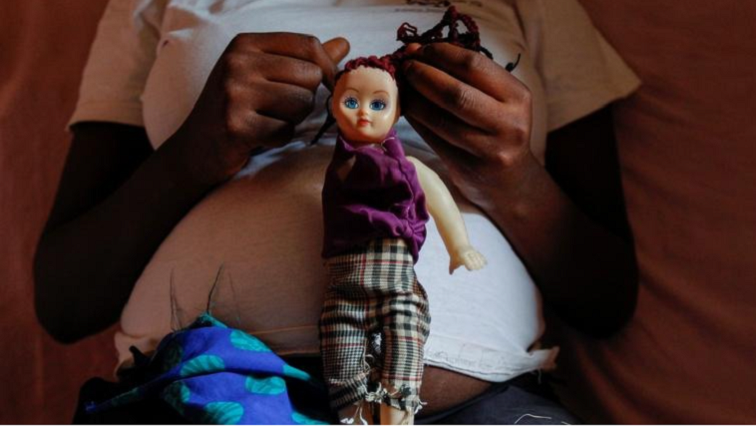As schools across the world begin to reopen after a prolonged closure to control the spread of COVID-19, there are real concerns that millions of young girls, now new mothers, may miss out on school altogether, either due to laws in their countries that ban pregnant pupils from school. This could also be due to a lack of a caregiver for the newborn baby or due to the stigma associated with teenage pregnancies. A school in Kenya is, however, hoping to change that by admitting pregnant teenagers and mothers with their babies.
For two weeks now, 16-year-old, Anne Wanjiku, whose name we have changed to protect her identity, begins her day by washing her new born baby’s clothes and then settling down to breastfeed her – before joining her peers for school.
Tucked away almost in the middle of nowhere in Central Kenya is a school christened Serene Haven Girls Secondary School, where pregnant teens and teenage mothers have sought shelter, comfort and camaraderie as they start their second term of school nine months since Kenya closed all learning institutions to control the spread of COVID-19. It is during this period that the health ministry estimates that there was a spike in the number of teenage pregnancies.
“Due to COVID we have a very big number of girls who will not be able to manage through their education because they got pregnant and we thought, how can we help these girls and that is how we got the idea of starting a school, where we would have the girl come with the child we have a daycare for the child and then the mother continues with the education,” says a counsellor at Serene Haven Girls Secondary School, Faith Kariuki.
Concerns that young mothers in Kenya may miss school:
Unlike the normal school curriculum, the school offers the young mothers and mothers-to-be long breaks – during which time, the girls undergo group therapy sessions or they get a chance to bond with each other and their little ones.
The school also offers skills on baby care.
“Here there is no shame, in fact I was asking them how do you feel, I’m comfortable here, I’m not pointed at, nobody is looking at my stomach how big it is, they are not judged,” says Kariuki.
Serene Haven also acts as a rescue centre as some of the girls are victims of sexual abuse by people they know and Serene Haven allows them to pursue justice away from their perpetrators.
Wanjiku who lived with her siblings and stepfather after the death of her mother during childbirth – was preyed upon by the man she hoped would offer her protection.
“He told me he would by me a phone and also give me a thousand shillings,” she says.
When she fell pregnant, she gave up on her dream of one day being a doctor. Her arrival at the school has rekindled it.
“I really wanted to study to secondary school and then university. When I grow up I will like to be a doctor,” she says.
A report released by Global Charity World Vision indicates that, with an increase in teenage pregnancies as well as policies that ban pregnant girls and young mothers from school an estimated one million girls in Sub Saharan Africa may miss school once they reopen.
Dr Loise Gichuhi, an expert on education in emergencies, says the world should have seen this coming.
“Borrowing from the lessons we have learnt from other countries, especially during pandemics, it may not have been a surprise for example in West Africa when there was Ebola; there we a lot of cases,” she says.
In Kenya, the education ministry has made it a deliberate effort to ensure all children are back to school including those who have given birth or fallen pregnant.
However, the shame and stigma associated with adolescent pregnancy is likely to keep so many girls out of schools, even in countries where government is offering them a second chance.
“The most likely scenarios the teenage mother is told you will have to babysit your baby for three to four years. The child would have lost interest in education by then,” says Serene Haven Secondary School Founder, Kelvin Ndegwa.
While Serene Haven may offer a solution, Dr. Gichuhi believes integration is a better solution.


